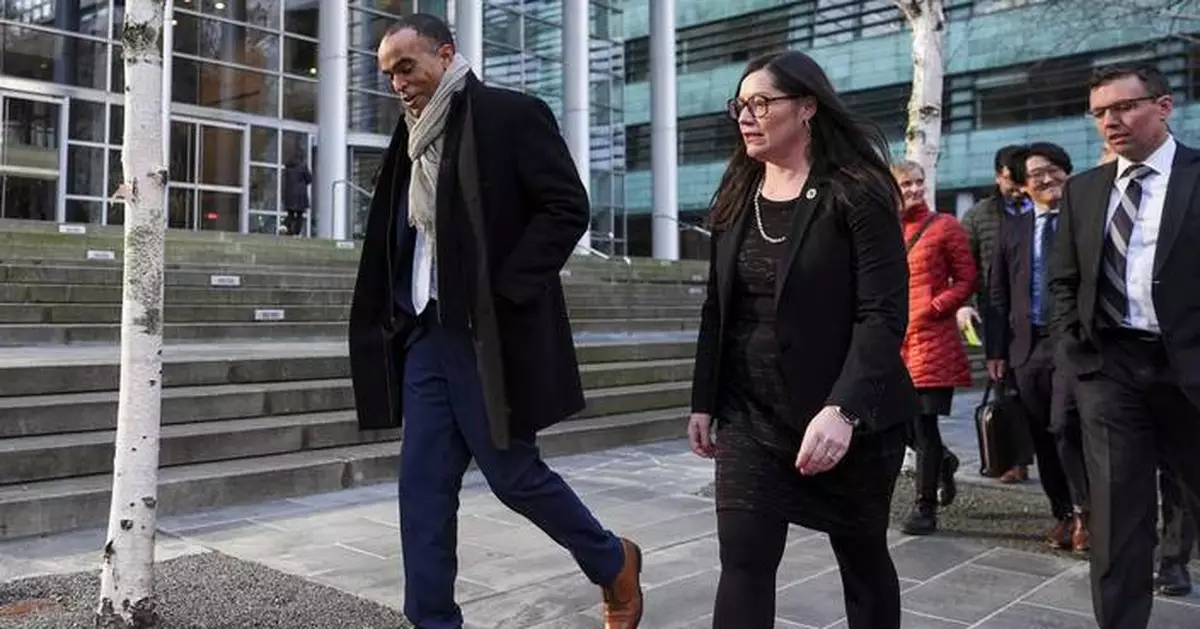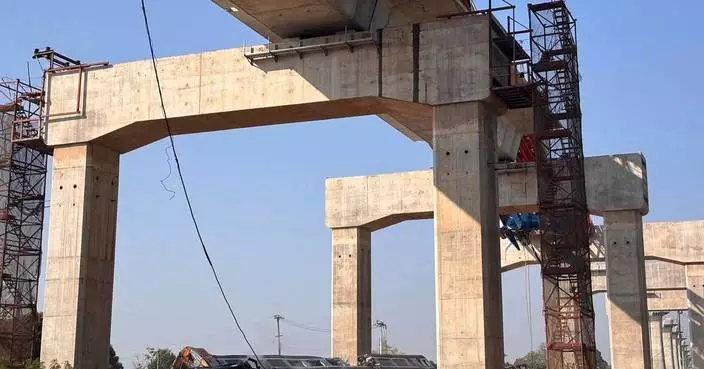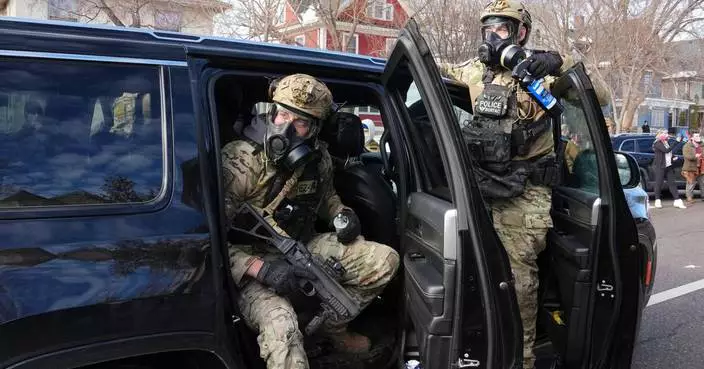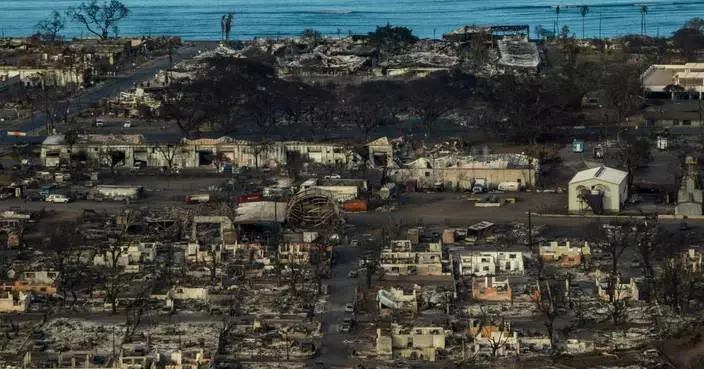SEATTLE (AP) — A second federal judge in two days has blocked President Donald Trump’s effort to end birthright citizenship for the children of parents who are in the U.S. illegally, decrying what he described as the administration's attempt to ignore the Constitution for political gain.
U.S. District Judge John C. Coughenour in Seattle on Thursday put Trump's order on hold for the duration of lawsuits brought by four states and an immigrant rights group challenging it. His ruling followed one by a federal judge in Maryland in a separate but similar case involving immigrants’ rights groups and pregnant women whose soon-to-born children could be affected.
Here’s a closer look at where things stand on the president’s birthright citizenship order.
The president’s executive order seeks to end the automatic grant of citizenship to children born on U.S. soil to parents who are in the country illegally or who are here on a temporary, but lawful basis such as those on student or tourist visas.
For now, it’s on hold. Two weeks ago, Coughenour issued a 14-day temporary restraining order blocking its implementation, calling it “blatantly unconstitutional.”
On Wednesday, U.S. District Judge Deborah Boardman in Maryland followed that up with an injunction keeping it on hold long-term, until the merits of the case are resolved, barring a successful appeal by the Trump administration.
Following a hearing on Thursday, Coughenour — a Ronald Reagan appointee who has been on the bench since 1980 — issued his own injunction. Trump is simply trying to amend the 14th Amendment — which grants citizenship to those born in the U.S. and subject to its jurisdiction — for political reasons, the judge said.
“The rule of law is, according to him, something to navigate around or something ignored, whether that be for political or personal gain,” Coughenour said. “In this courtroom and under my watch the rule of law is a bright beacon, which I intend to follow.”
Late Thursday the Justice Department appealed his order to the 9th U.S. Circuit Court of Appeals. It did not appear that the DOJ had yet appealed the Maryland ruling to the 4th Circuit.
In total, 22 states, as well as other organizations, have sued to try to stop the executive action. They say that if it takes effect, it could create an underclass of essentially stateless residents.
The matter before the Seattle judge involves four states: Arizona, Illinois, Oregon and Washington. It has been consolidated with a lawsuit brought by the Northwest Immigrant Rights Project on behalf of a proposed class of expectant parents who are in the U.S. unlawfully. Eighteen states, led by Iowa, filed a “friend-of-the-court” brief supporting the Trump administration’s position in the case.
Another hearing is set for Friday in a Massachusetts court. That case involves a different group of 18 states challenging the order, including New Jersey, which is the lead plaintiff. Yet another challenge, brought by the American Civil Liberties Union, goes before a federal judge in New Hampshire on Monday.
At the heart of the lawsuits is the 14th Amendment to the Constitution, ratified in 1868 after the Civil War and the Dred Scott Supreme Court decision, which held that Scott, an enslaved man, wasn’t a citizen despite having been brought to a state where slavery was outlawed.
The amendment holds that “all persons born or naturalized in the United States and subject to the jurisdiction thereof, are citizens of the United States and of the State wherein they reside.”
The Trump administration, which has sought to curtail unlawful immigration, has asserted that noncitizens are not “subject to the jurisdiction” of the United States and their children born in the U.S. are not entitled to citizenship.
“The Constitution does not harbor a windfall clause granting American citizenship to ... the children of those who have circumvented (or outright defied) federal immigration laws,” the government argued in reply to the Maryland plaintiffs’ suit.
The plaintiffs call that ludicrous, noting that illegal immigrants are required to pay taxes and follow the law, and that men ages 18 to 26 who are in the country illegally are still obligated to register for the U.S. Selective Service System, meaning they could be drafted to fight for the U.S. in a war.
“It is patently absurd for defendants to contend that a person who can be conscripted into the military — forced to fight for this country — is not subject to its jurisdiction,” Matt Adams, legal director for the Northwest Immigrant Rights Project, told Coughenour.
The plain meaning of the 14th Amendment has been recognized since it was ratified, notably in an 1898 U.S. Supreme Court decision. That decision, United States v. Wong Kim Ark, held that the only children who did not automatically receive U.S. citizenship upon being born on U.S. soil were children of diplomats, who have allegiance to another government; enemies present in the U.S. during hostile occupation; those born on foreign ships; and those born to members of sovereign Native American tribes.
In 1924, Congress passed a separate law granting birthright citizenship to Native Americans.
The U.S. is among about 30 countries where birthright citizenship — the principle of jus soli or “right of the soil” — is applied. Most are in the Americas, and Canada and Mexico are among them.
Catalini is based in Trenton, New Jersey. Associated Press writer Michael Kunzelman contributed from Greenbelt, Maryland.
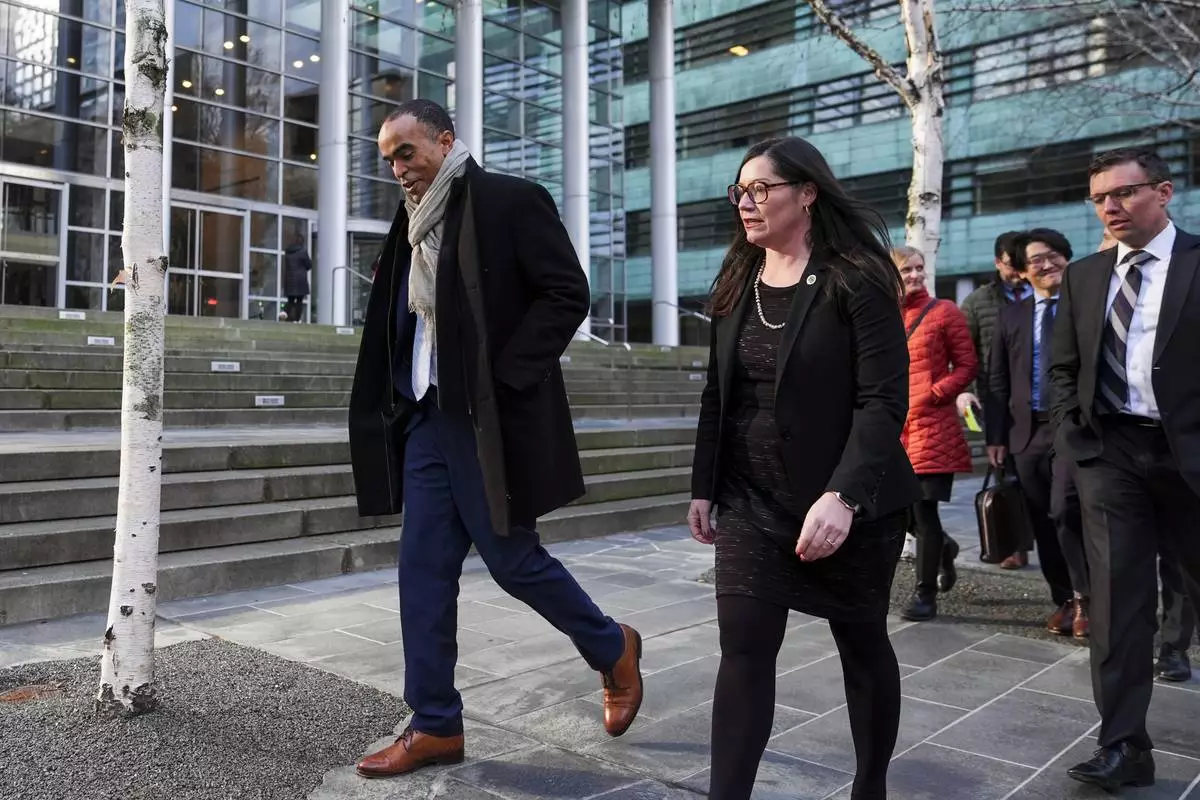
Washington Attorney General Nick Brown departs a press availability after a federal judge temporarily blocked President Donald Trump's executive order aimed at ending birthright citizenship in a case brought by the states of Washington, Arizona, Illinois and Oregon, Thursday, Jan. 23, 2025, in Seattle. (AP Photo/Lindsey Wasson)


